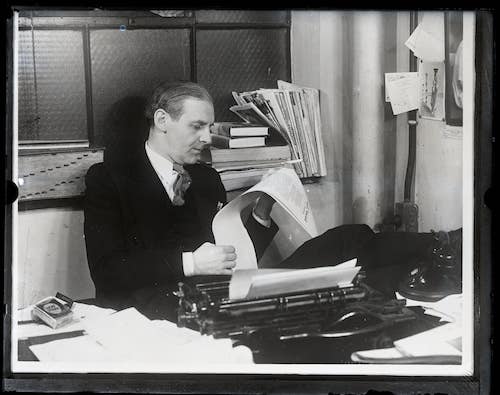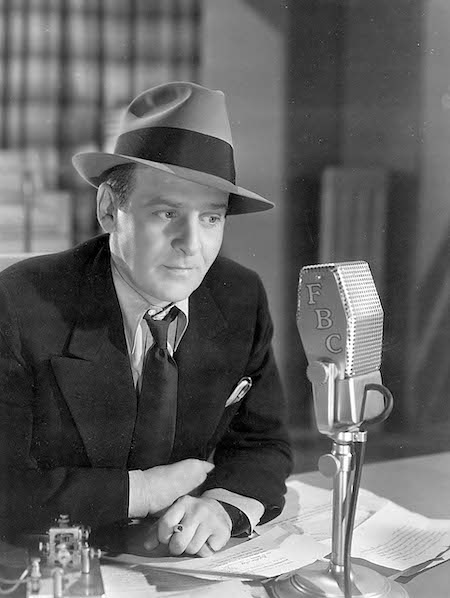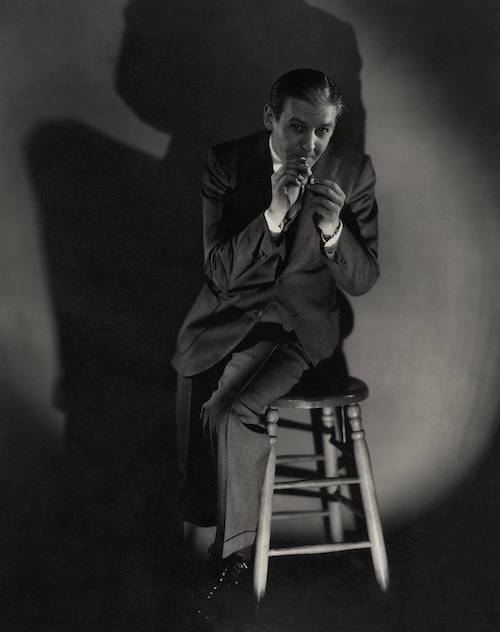Communiqué
New AMERICAN MASTERS Documentary Tells the Story of Walter Winchell – October 20 at 9 pm
< < Back toNew American Masters Documentary Tells the Story of the Media Personality Who Pioneered Fast-Paced, Celebrity-Focused and Politically Charged Journalism
Walter Winchell: The Power of Gossip premieres Tuesday, October 20 on PBS
Featuring Stanley Tucci as Winchell and narrated by Whoopi Goldberg
American Masters presents the broadcast premiere of Walter Winchell: The Power of Gossip, a new documentary that traces the life and career of the syndicated columnist, radio news commentator and television host who created the fast-paced, gossip driven, politically charged media culture that dominates today. At the height of his career, Winchell had a combined print and radio audience of 50 million and the power to make or break careers. He became the most feared and admired man in America, transforming entertainment journalism and championing “Mr. and Mrs. America” in his daily columns and Sunday night radio program. Decades later, an alliance with Senator Joseph McCarthy and feuds with Josephine Baker and Ed Sullivan turned his audience against him and forced him into obscurity.

Featuring Stanley Tucci as the voice of Winchell and narrated by Whoopi Goldberg, this American Masters documentary breathes new life into Winchell’s original newspaper columns and broadcast scripts, drawing on rare recordings and a recently digitized collection of his work in the Billy Rose Theatre Division at The New York Public Library for the Performing Arts. Winchell’s own words comprise nearly a quarter of the script as the film tracks the rise and fall of his career, and his continued influence on today’s media.
“Walter Winchell is the architect of modern American media,” says biographer and film interviewee Neal Gabler. “He turned journalism into a form of entertainment.” Written, produced and directed by Ben Loeterman, American Masters – Walter Winchell: The Power of Gossip premieres Tuesday, October 20 at 9 p.m. on PBS, pbs.org/americanmasters and the PBS Video app.
Winchell’s approach to gossip
- Winchell grew up poor in East Harlem, the son of Russian Jewish immigrants. He rose quickly from vaudeville performer to Broadway tattler by posting gossip about his acting troupe on backstage bulletin boards. In 1924, the tabloid newspaper The New York Evening Graphic offered him a job, which became a springboard to his position as a powerful syndicated columnist.
- Winchell invented words and used innuendos, known as “Winchellese,” to protect himself against accusations of libel. His personalized “slanguage” implied that a man was “that way” about a woman, that a couple was expecting a “blessed event” and that New Yorkers could visit “hush parlors” to drink “giggle water” during Prohibition.

WALTER WINCHELL ©PHOTO BY GLOBE PHOTOS, INC. - Winchell may have rubbed elbows with celebrities and politicians, but he never forgot his real audience: “Mr. and Mrs. America.” He empowered the common man and woman by letting them in on the secrets of the rich and powerful.
Winchell and politics
- Winchell called himself a liberal Democrat, but his political compass swung wildly over the course of his career. Certain core views, however, never changed: his Jewish pride, his hatred of fascism, his championing of the New Deal and his intense anti-Communism.
- In March 1933, Winchell was summoned to meet with newly elected President Franklin Delano Roosevelt and emerged transformed. He started advocating for FDR and his New Deal policies in his column and on the radio. Through the 1930s, Winchell intensified his support for FDR’s interventionist foreign agenda.
- Winchell was called the “most rabid anti-Hitlerite in America.” In February 1933, just weeks after Adolf Hitler became German chancellor, he wrote, “Too bad that a man like Hitler can rise so high in politics, who hates so intensely…. His hatred of the Israelites is contemptible.”
- Winchell didn’t shy away from speaking as a Jew against Nazism, even as many other broadcasters and columnists were silent. In 1939, 20,000 Nazi sympathizers staged a rally at Madison Square Garden. Winchell wrote of the event, “In every corner of the land, America was nauseated. The American press unanimously condemned it as the vilest sacrilege ever perpetrated in the name of American freedom. ”
- Winchell wielded enormous political power for over two decades. Roosevelt’s administration recruited him to disseminate its initiatives, Prime Minister Neville Chamberlain took his advice on wording for Britain’s declaration of war against Germany, and J. Edgar Hoover welcomed his efforts to expose American Nazi groups.
- After FDR’s death, Winchell butted heads with the new president, Harry Truman, who had no interest in a continued collaboration between the White House and the columnist. After years in political limbo, Winchell befriended Roy Cohn, a young lawyer who quickly became Senator Joseph McCarthy’s aide. Winchell shocked his audiences by suddenly championing McCarthyism in the 1950s.

Studio portrait of American newspaper and radio commentator Walter Winchell half-sitting on a stool and lighting a cigarette
Winchell’s downfall
- Winchell briefly attempted a television career in the 1950s, but he was not telegenic. While he managed to keep a news program running for three seasons, his 1956 attempt at a variety show flopped after just 13 episodes.
- On October 16, 1951, Black performer Josephine Baker experienced racial discrimination at the Stork Club, Winchell’s unofficial headquarters. Baker publicly called out Winchell for not coming to her aid and condemning the club. Over the following weeks, Winchell impugned her on the air and in print. Baker called on the NAACP to picket the Stork, filed a $400,000 lawsuit against Winchell and appeared on the Barry Gray radio talk show.
- After radio talk show host Barry Gray invited Baker to explain what happened on his radio show, Winchell viciously and repeatedly castigated Gray as well. His shrill outbursts became notorious, stirring one of his rivals, Ed Sullivan, to declare, “I despise Walter Winchell because he symbolizes to me evil and treacherous things in the American setup.”
- By spring 1954, Senator McCarthy had fallen from grace. Winchell lost his ally and what was left of his political power, and his reputation was badly tarnished.
- Winchell helped create a cycle of celebrity – the meteoric rise followed by the crushing fall – and then fell victim to it himself. He wrote, “I died on October 16, 1963,” the day his flagship paper, the New York Daily Mirror, folded.

